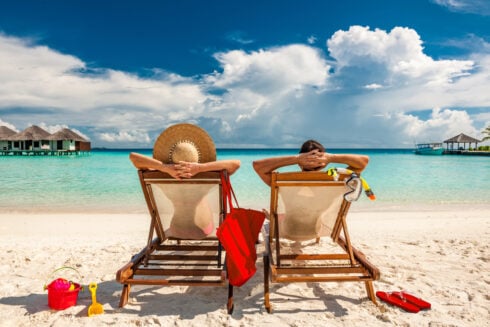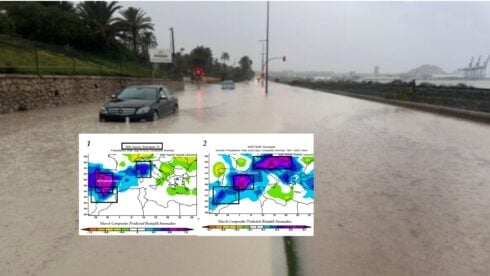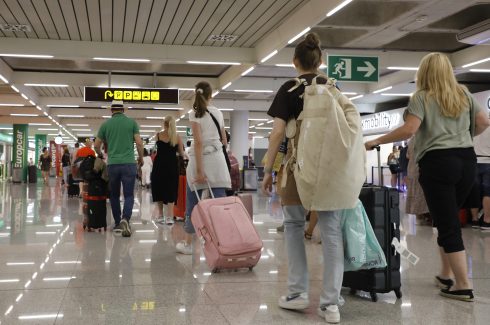The Olive Press investigates
WORKERS on the party island of Ibiza have told the Olive Press the rental situation is ‘set to explode’.
It comes as we discovered hundreds of them living in makeshift homes in scrubland just outside Ibiza town, or parked up living in vehicles.
To make matters worse the authorities have recently started clearing one camp near the supermarket Mercadona and are threatening to clamp down on others.
READ MORE:
- Homeless crisis hits Mallorca’s hotspots as spate of thefts reported at Palma airport ahead of Spain’s tourist season
- Madrid airport will demand to see boarding passes at night to tackle homeless crisis
- Homeless people in Malaga airport ‘mostly foreign and refuse paid flights home’
At one rapidly expanding shanty town near the ITV (MOT) testing centre – as shown on Sky News last week – there are hundreds camped together.
It is the same situation close to the famous party resort San Antonio.
This week the Olive Press found a number of other smaller camps near Playa d’en Bossa, less than a kilometre from Ibiza’s tourist Mecca of Dalt Vila.
In the lee of blocks of luxury apartments costing upwards of half a million euros they showed us how they cooked on outdoor stoves and washed with water bottles.
Some who asked not to be photographed had small children.
But these people are not Gypsies, travellers or illegal immigrants. They are legal European workers who have contracted six month work contracts this summer.
I spoke to three employees – with well paid full time contacts – having to live in these dehumanizing conditions.
They all blame the local and national government for years of under investment in public or cheap housing.
One, a Romanian called Julio, 33, is in his second year working at a parking company at Ibiza Airport.

Half asleep on a makeshift bed made out of a trampoline base under a tree on scrubland, his life was spread out in bags around him. A fellow worker slept in a bizarre car seat bed next to him.
Julio showed me his uniform and liveried cap (we are not naming the firm to protect him) before explaining: “It’s a decent well paid job and I like the work but it’s impossible to find somewhere to live.
“All the apartments I have seen are costing minimum €2,000 a month and the cheapest I found was a room for €1,000 in a shared flat with four others.
“By the time you’ve paid utilities they’ll be nothing left.
“Last year the boss of our company rented a big apartment for a few of the staff but this year he hasn’t, saying he can’t afford it.”
The father-of-two, whose family are back in Bucharest, continued: “The booming Spanish economy means there is lots of work. But at what cost?
“I’ve been thinking of moving over to Mallorca where I’ve heard it’s much easier to find a home.”
Another man living nearby in his car, alongside at least half a dozen others, told me he is a security guard at one of the clubs and has ‘no way’ to afford a flat.
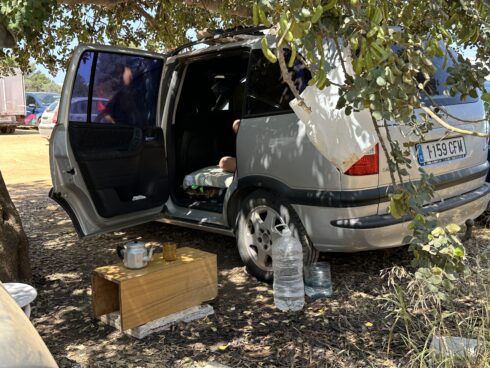
The Morrocan, who insisted he was fully legal in Spain said: “There are some apartments with 12, even 15 people sharing, each paying €400/500. I’d rather be alone here.”
It has become such a problem that many hotels and restaurants are desperate to find employees as the season is beginning.
With up to four million tourists set to descend on the island this year and only 2,300 official holiday rental properties, the statistics don’t add up.
Too many foreign owners have stopped renting for the season and are renting short term via rental sites and word of mouth between ‘friends’.
The number of illegal villas, apartments and rooms is impossible to calculate.
While fines of up to €500,000 can be imposed on illegal tourist rentals, some tenants are subletting via accommodation websites, with the real owners unaware.
The regional authorities insist they are working with Airbnb and Booking.com to clampdown.
Enrique Gomez Bastida from Ibiza Consell’s housing department told the Independent the rise of tourist villas and even extra rooms rented out in houses has stretched the island’s limited resources.
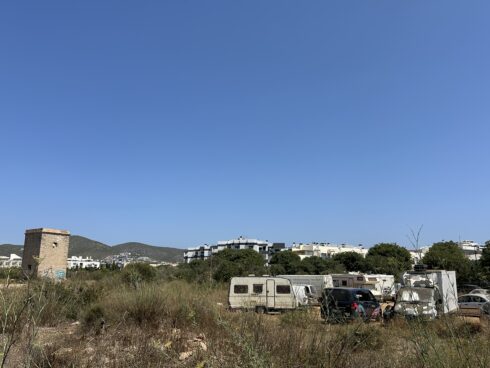
He admitted the soaring property prices have caused a housing crisis so severe that many municipal workers – including judges, police officers and medial workers – are now unable to afford to live there.
In March the Consell signed an unprecedented deal with Airbnb to remove 300 illegal rental homes from the platform.
Under the agreement moving forward, properties will now be removed ‘without discussion or appeal’, to stop costly legal delays.
But it has likely come too late for this summer.
One long time restaurant manager, who asked to remain anonymous, told me he has recently resigned to drive a taxi.
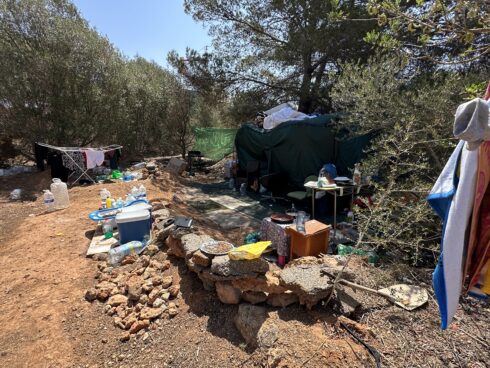
“I was well paid managing a hotel restaurant last year where we should have had nine staff but we only had four or five,” explained the Ibicencan who has worked in tourism for ‘over 30 years’.
“It was so stressful – everyone was doing double the work and I had to pick up all the slack most of the time.
“It was impossible and this year will be worse for sure.”
Some hotel and restaurant owners have solved the problem by renting apartments – even entire blocks – to house their staff.
The owner of the island’s recently opened Nobu Hotel, Daniel Shamoon, confirmed to the Olive Press that his company, for example, had acquired enough property to guarantee fair rentals for its staff.
The dynamo behind dozens of hotels, including the Marbella Club and Puente Romano, described the situation on the island as ‘not easy’.
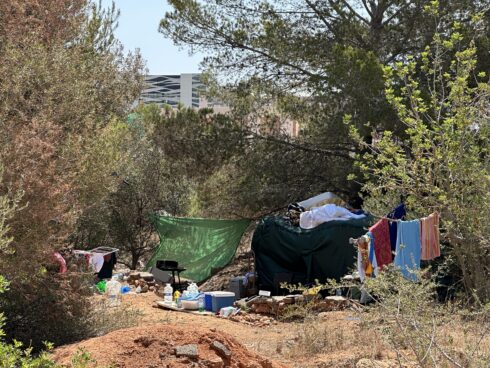
One policy the island is attempting to tackle is the number of rental cars and people bringing their own cars to the island.
According to a source the Consell is about to charge people a euro a day to come over in their cars and vans to try to stop them living in them.
Last month the Balearic authorities also sanctioned a law which means fines for illegal rentals will be reduced by 80% if owners agree to rent long term as social housing.
In order to qualify, owners in Ibiza will have to rent them out for a period of five years via the Consell.
Prices will be set by the authorities with the most needy among the local 160,000 year-round residents being favoured first.
Click here to read more Balearic Islands News from The Olive Press.


